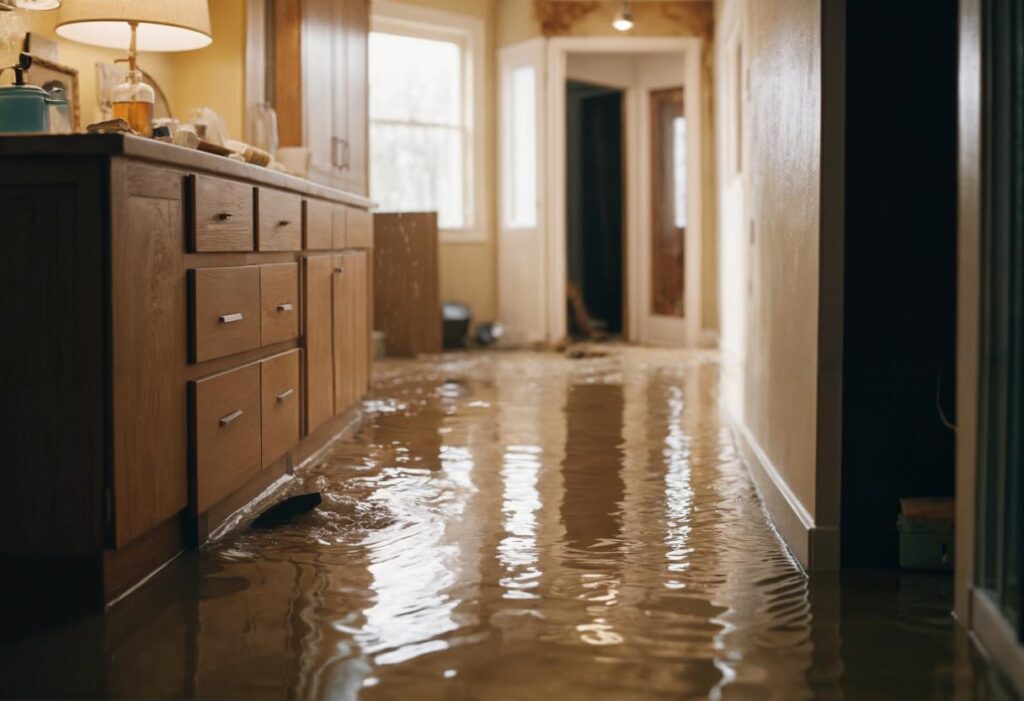
Contents
Many people underestimate the complexity of flood damage repair, especially when it comes to extraction techniques. Effective water removal is essential, as it can greatly impact the overall restoration process. There are several methods available, each with its unique advantages and applications. Understanding these techniques can help you make informed decisions when faced with water damage. Let’s explore the five best extraction methods that can minimize damage and set the stage for a successful recovery.
Key Takeaways
- Utilize high-volume water extraction pumps for rapid removal of standing water and to minimize mold growth.
- Implement truck-mounted extraction systems for effective recovery in severe water damage scenarios.
- Opt for portable water extraction units for tight spaces, ensuring ease of transport and powerful suction capabilities.
- Employ vacuum-assisted extraction techniques to efficiently eliminate moisture from various surfaces, reducing the risk of mold.
- Incorporate commercial-grade dehumidifiers and high-velocity fans for optimal moisture removal and air circulation during the drying process.
High-Volume Water Extraction Pumps
When tackling flood damage, employing high-volume water extraction pumps is essential for efficient recovery.
These powerful machines quickly remove standing water, minimizing the potential for mold growth and structural deterioration. You’ll want to choose a pump with a high GPM (gallons per minute) rating, as this directly impacts the speed of your recovery efforts.
Position the pump strategically to maximize water removal, ensuring you cover all affected areas.
Regularly monitor the pump’s performance and adjust as necessary to maintain peak efficiency.
Additionally, remember to check the power source; a reliable generator can keep your pump running continuously.
Truck-Mounted Extraction Systems
Truck-mounted extraction systems offer a powerful solution for flood damage recovery, combining high-capacity water removal with mobility.
These systems are designed to tackle severe water damage effectively, making them ideal for both residential and commercial environments. With their robust performance and efficiency, you can trust them to facilitate the drying process and minimize secondary damage.
- High-capacity pumps for rapid water removal
- Integrated filtration systems to ensure clean extraction
- Mobility that allows access to hard-to-reach areas
- Versatile attachments for various surfaces and materials
Using truck-mounted systems enhances your recovery efforts and fosters a sense of community among professionals.
You’re part of a network dedicated to restoring spaces and helping those affected by the disaster. Embracing these advanced techniques can elevate your flood damage repair process and reinforce your commitment to excellence.
Portable Water Extraction Units
For situations where mobility and flexibility are paramount, portable water extraction units provide an effective alternative to truck-mounted systems. These compact machines are designed to be easily transported, allowing you to access tight spaces and challenging environments where larger units may struggle.
You’ll find that their lightweight design doesn’t compromise performance; many models boast impressive suction power and high-capacity tanks, making them highly efficient for rapid water removal.
When choosing a portable unit, consider factors such as recovery rate, hose length, and ease of operation. Look for features like adjustable suction settings and built-in filtration systems to enhance your efficiency.
Additionally, make sure the unit is durable enough for frequent use in demanding conditions. By investing in the right portable water extraction unit, you’ll enhance your flood damage repair capabilities, making certain you’re always ready to respond effectively when disaster strikes.
Your ability to adapt will foster a sense of community and support among those you assist.
Vacuum-Assisted Extraction Techniques
Vacuum-assisted extraction techniques offer an efficient method for removing water and moisture from various surfaces after a flood. By utilizing powerful vacuums, you can expedite the drying process and minimize damage. This method is especially effective for porous materials like carpets and upholstery.
- Quickly removes standing water
- Reaches deep into fibers and cracks
- Reduces the risk of mold growth
- It can be used on various surfaces
When employing vacuum-assisted extraction, make certain you select the right equipment and settings for your specific needs. Proper technique is essential; start from the farthest point and work your way back to avoid re-wetting areas.
This method enhances efficiency and promotes a healthier environment by tackling moisture at its source. By mastering vacuum-assisted extraction, you’ll feel empowered to restore spaces to their pre-flood condition, fostering a sense of belonging and safety for all.
Dehumidification and Air Movement Strategies
While you focus on restoring a flood-damaged area, implementing effective dehumidification and air movement strategies is essential for preventing ongoing moisture issues.
Start by using commercial-grade dehumidifiers, which can extract moisture from the air efficiently. Place these units strategically in the most affected areas to maximize their impact.
Next, enhance air circulation with high-velocity fans. Position them to create cross-ventilation, which aids in drying surfaces and reduces humidity levels more quickly. Make sure to direct airflow towards walls and furniture that retain moisture.
Monitor humidity levels regularly using hygrometers; ideally, you’ll want to maintain levels below 60%.
Lastly, keep windows and doors closed to prevent outside moisture from seeping in during humid days.
Summary
In the aftermath of flooding, employing these five extraction techniques can be your lifeline, much like Odysseus maneuvering the treacherous waters of the Aegean. By utilizing high-volume pumps, truck-mounted systems, and portable units, you’re removing water and safeguarding your property from further damage and mold. Vacuum-assisted methods and strategic dehumidification ensure that every drop of moisture is addressed. With each step, you’re restoring spaces and peace of mind in the wake of disaster.
Recent Posts
Why Does Insurance Cover Mold Removal Services?
Mold can be a hidden menace in your home, often growing unnoticed until it causes
Steps for Filing Emergency Water Damage Claims
When faced with emergency water damage, it’s essential to act swiftly and systematically. Start by
Navigating Water Damage Insurance Claims: A Guide
Steering through water damage insurance claims can be intimidating, especially when you’re faced with the
